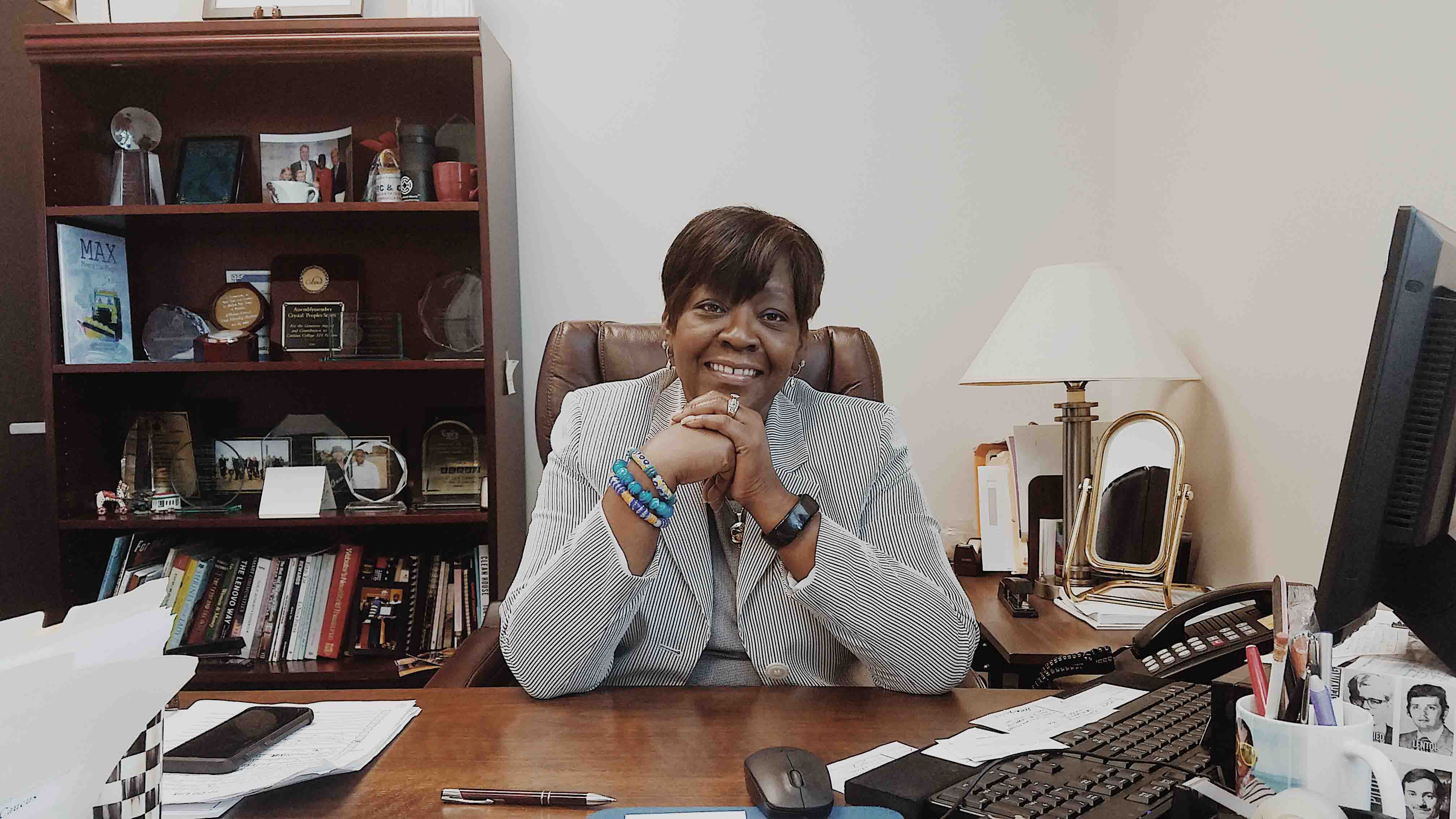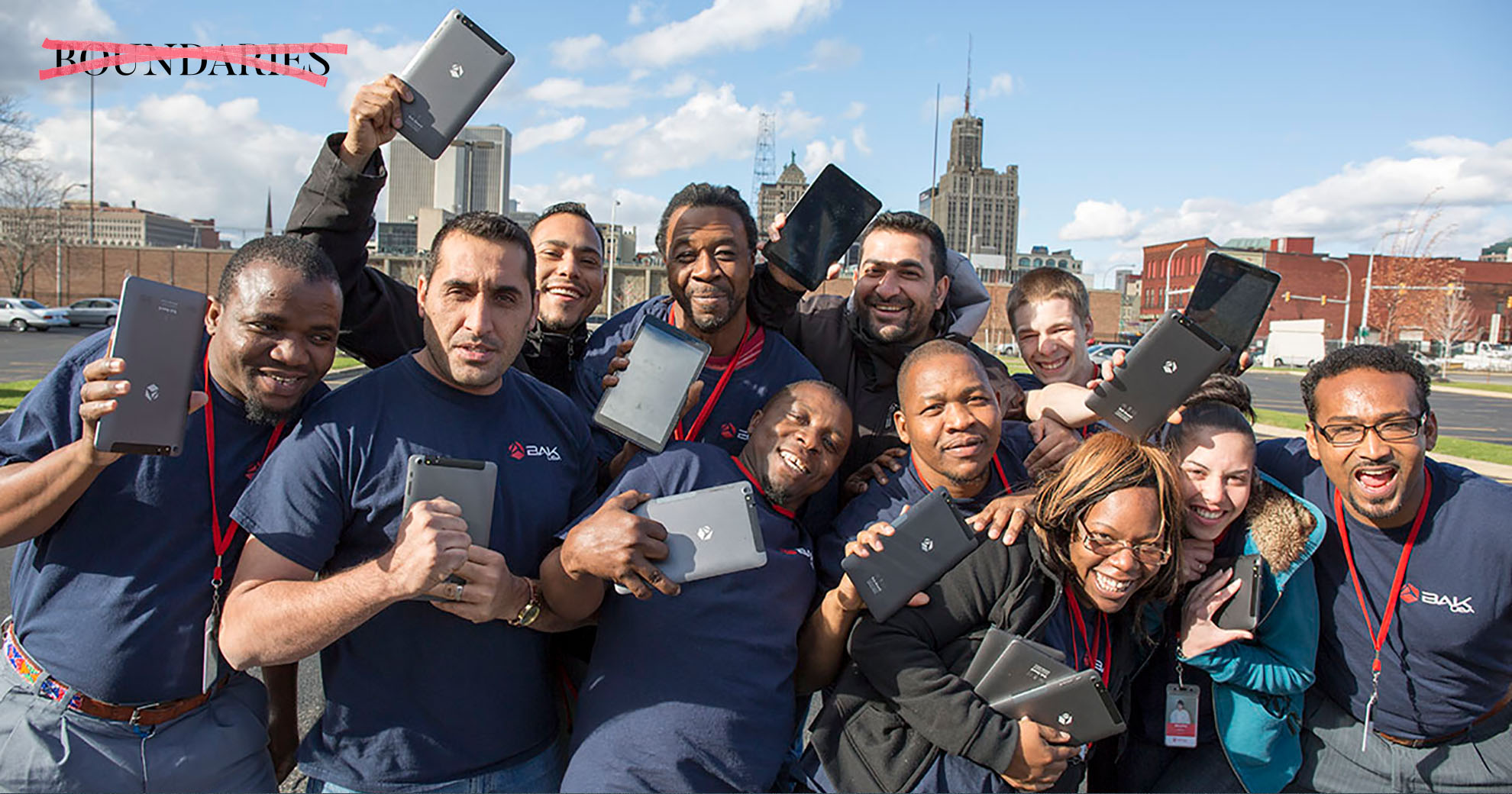By Kevin Heffernan
“The establishment told me they had already picked someone else. ‘You’re not our candidate,’ they said. I thanked them for their time and told them I was going to run anyways. The election was so close it took two days to count, and I won by 25 votes. All you need is one more than the other candidate you run against. Just one more.”
The Honorable Crystal D. Peoples-Stokes is the New York State Assemblywoman for District 141 in Buffalo. Her life and career have featured a series of people in authority underestimating her and trying to limit her, based on the stereotypes they had developed for women of color.
At Bennett High School, her guidance counselor asked why she was taking so many courses to prepare her for college. “You should be focusing on courses to prepare you for clerical work,” she said.
“This woman did not know me at all. She didn’t know my family. I’m one of five children and the conversation around our dinner table was never about if one of us would go to college – it was where would we go?” said Peoples-Stokes.
That destination was Buffalo State. After college, she worked as a teacher in Buffalo for a few years before leaving the profession. “I was too much of a rebel after college. I could not work within that system. I was frustrated with the rules within organized labor, but the biggest reason I left was that the system did not know how to education children of color. In many ways, they still don’t know.”
For years, Peoples-Stokes worked for multiple nonprofits where young people came in needing something, they were provided a service, they left, and whether or not it helped them in the future, one rarely found out. For that reason, taking a job with Citizens Action of New York was a turning point in her life and career. She started working on the Hazard Standard Communication Right to Know Act. She dealt with people in all different professions including barbers and hairstylists in the east side.
“People need to know what it is in their work environment that could have a negative impact on their health. It was really an early implementation of OSHA. Many of them had no idea that if they worked with those chemicals daily, it could have negative impacts on their future children. I picked up that area because it was the community I represented. To that point, who had even thought of organizing that community?”
Work continued to evolve. Public housing tenants were being informed and organized to take greater control over what was going on in their development. Families with children affected by lead poisoning were getting more involved. Citizen Action and the communities they worked with her able to introduce legislation to NYS Assemblyman Arthur O. Eve, and it’s now the reason New York is required to keep data of the zip codes where children are affected by lead poisoning and has had a major impact on curbing the health crisis.
Citizen Action was then, and is today, truly direct action. “We organized people to take an active role in changing things they didn’t like. That model is more empowering. You just need to find the people in the community who agree with you. At the end of the day, you needed to talk to a lawmaker to make something happen. If lawmakers could enact change, I could probably do it too. I decided to go for it.”
A career in politics began for Peoples-Stokes by successfully running against the establishment candidate for an open Erie County Legislator seat, winning by just 25 votes. She spent nine years in the legislature. Five of which were as the majority leader, the first black woman to hold the position.
“In 1998, I ran for US Congress against Jack Quinn. Healthcare was my motivation to run. There wasn’t anywhere in the district I did not go including his hometown of Hamburg,” said People-Stokes. “In challenging the incumbent, I did well enough to be a respected candidate, and get the word out about my position on issues. It was the first time a woman of color had received the Erie County Democratic Party’s endorsement.”
Peoples-Stokes then set her sights on the State Assembly. She challenged Arthur O. Eve for his seat two times. The second run, in 2000, was described by the New York Times as the toughest challenge to Eve in his entire career. Eve won by a very narrow margin, but retired after that term. Peoples-Stokes then won the open seat and got to work in Albany in 2003.
Her first order of business was women. A law that passed under Governor Mario Cuomo, Section 15A of the state Administrative Code, which allows state agencies to be given goals of minorities and or women-owned businesses, was about to sunset. She approached Assembly Speaker Sheldon Silver and asked to form a subcommittee that would work solely on that issue. The motion was approved and she was to lead the subcommittee. The law passed and a disparity study was done that showed women and minority-owned businesses (MWBE) were not getting access to government contracts.
Under Governor Pataki, goals were put in place to do state business with women and minorities. They have increased continuously under Governors Spitzer, Paterson and Andrew Cuomo. Fifteen years later, 30% of New York State’s business must contract with MWBE’s. “Because of that, we were able to change the dynamics of the economy. When women earn more money, they’re less reliant on men, including those who may be abusive. The same can be said for minorities in respect to their communities. To me, it’s the most important work I’ve done.”
“While in office, the challenges I’ve seen are no different than when I was in high school,” said Peoples-Stokes. “I’ve been shoe boxed into roles stereotypical of my gender and race. You sometimes have to accept what you’re assigned to, but you should keep pursuing your passions. There will be an assumption that you fit into a mold, but you need to break out of it.”




